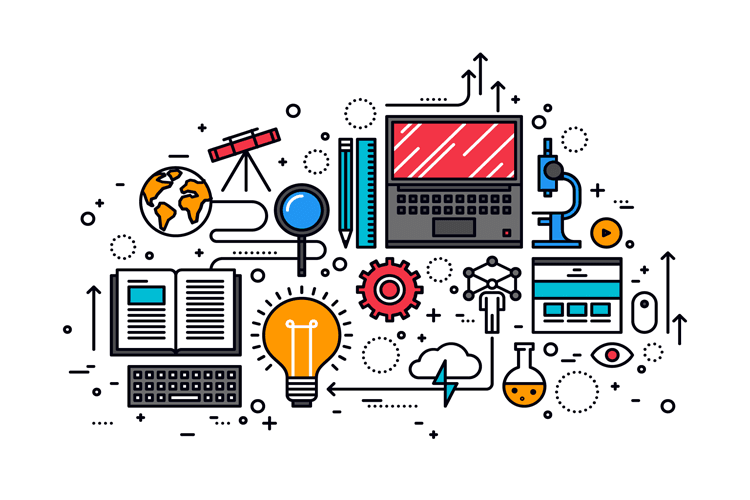Technology has revolutionized every aspect of our lives, transforming the way we communicate, work, and live. From the invention of the wheel to the digital age, technological advancements have driven human progress. Today, we live in a world where technology is intertwined with our daily routines, enhancing our experiences and providing unprecedented opportunities. This article explores the profound impact of technology on various facets of our lives, highlighting the significant changes it has brought about.
Revolutionizing Communication
The advent of technology has drastically revolutionized communication. In the past, communication was limited to face-to-face interactions, letters, and landline telephones. However, the emergence of the internet, mobile phones, and social media has transformed the way we connect with others. Instant messaging apps, video calls, and social networking platforms enable us to communicate with anyone, anywhere in the world, in real time. This has bridged geographical gaps, fostering global connectivity and collaboration.
Moreover, technology has facilitated the rise of new forms of communication, such as blogging, podcasting, and vlogging. These platforms allow individuals to share their ideas, experiences, and expertise with a global audience, democratizing the dissemination of information and giving rise to a new era of digital content creation.
Transforming Education
Technology has significantly transformed education, making it more accessible, interactive, and personalized. The traditional classroom model has evolved with the integration of digital tools and online resources. E-learning platforms, virtual classrooms, and educational apps provide students with flexible learning options, enabling them to access educational content anytime, anywhere.
Interactive technologies like augmented reality (AR) and virtual reality (VR) are enhancing the learning experience by creating immersive and engaging educational environments. These technologies allow students to explore complex concepts and historical events in a more tangible and memorable way. Additionally, AI-driven personalized learning systems analyze students’ progress and adapt the curriculum to meet their individual needs, ensuring a more effective and tailored educational experience.
Revolutionizing Healthcare
The healthcare industry has undergone a profound transformation due to technological advancements. Modern technology has revolutionized healthcare, improving patient care, diagnosis, and treatment. Electronic health records (EHRs) have streamlined the management of patient information, enabling healthcare providers to access and share medical data efficiently. This has led to better coordination of care and improved patient outcomes.
Telemedicine, powered by high-speed internet and video conferencing, has made healthcare more accessible, especially for those in remote or underserved areas. Patients can now consult with doctors and specialists without the need to travel, saving time and resources. Additionally, wearable health devices and mobile health apps allow individuals to monitor their health in real time, promoting proactive health management and early detection of potential issues.
Enhancing Work and Productivity
Technology has fundamentally changed the way we work, enhancing productivity and efficiency. The rise of remote work, facilitated by cloud computing and collaboration tools, has given employees the flexibility to work from anywhere. This shift has not only improved work-life balance but has also allowed companies to tap into a global talent pool.
Automation and artificial intelligence (AI) are transforming industries by streamlining processes and reducing the need for manual labor. In manufacturing, robots and automated systems are increasing production speed and accuracy. In the service sector, AI-powered chatbots and virtual assistants are handling customer inquiries, improving response times and customer satisfaction.
Project management software and productivity apps help teams organize tasks, track progress, and collaborate seamlessly. These tools have revolutionized the workplace, enabling more efficient project execution and fostering innovation.

Changing Entertainment and Leisure
The entertainment industry has been profoundly impacted by technology, changing the way we consume and experience media. The advent of streaming services like Netflix, Hulu, and Spotify has revolutionized how we access movies, TV shows, and music. On-demand content is now available at our fingertips, allowing us to watch or listen to what we want when we want.
Video games have evolved from simple pixelated graphics to immersive, realistic experiences, thanks to advancements in graphics technology and computing power. Virtual reality (VR) and augmented reality (AR) are pushing the boundaries of interactive entertainment, offering new ways to experience games, movies, and even live events.
Social media platforms have also transformed how we share and discover content. User-generated content, such as YouTube videos and Instagram stories, has given rise to a new breed of digital influencers and content creators, democratizing fame and creativity.
Transforming Transportation
Technology has brought about significant changes in the transportation industry, making travel safer, faster, and more efficient. The development of electric and autonomous vehicles is revolutionizing the way we move. Electric cars, powered by renewable energy sources, are reducing our dependence on fossil fuels and contributing to a cleaner environment. Autonomous vehicles, equipped with advanced sensors and AI, promise to enhance road safety and reduce traffic congestion.
Ride-sharing services like Uber and Lyft have transformed urban transportation, providing convenient and affordable alternatives to traditional taxis and public transport. These platforms leverage GPS technology and mobile apps to connect passengers with drivers, optimizing routes and reducing wait times.
High-speed trains, such as Japan’s Shinkansen and the proposed Hyperloop, are reducing travel times between cities, promoting regional connectivity and economic growth. Additionally, advancements in aviation technology are making air travel more efficient and accessible.
Conclusion.
Technology has indelibly changed our lives, influencing how we communicate, learn, work, entertain ourselves, and travel. The rapid pace of technological advancement continues to shape our future, presenting new opportunities and challenges. As we embrace these changes, it is crucial to consider the ethical and societal implications, ensuring that technology serves as a force for good and contributes to the betterment of humanity.
